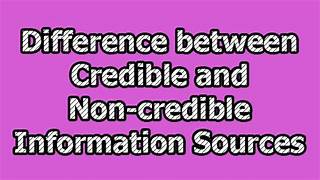Should There Be Regulation of Sites Such as Wikipedia, Which Provide Information That Is Not Necessarily Credible?
In today’s digital age, access to information has become more democratic than ever. Websites like Wikipedia play a pivotal role in this transformation, offering free and instant access to an extensive repository of knowledge. However, the platform’s open-editing model raises questions about the credibility and reliability of the information it provides. The debate over whether websites like Wikipedia should be regulated is multifaceted, involving issues of freedom of expression, the need for accurate information, and the challenges of implementing effective oversight. This article delves into these dimensions to explore whether regulating such platforms is necessary or feasible.
1. The Role of Wikipedia in the Information Ecosystem
Wikipedia has become a go-to source for millions of people worldwide, from students researching for school projects to professionals seeking quick clarifications. Its popularity stems from its accessibility, breadth of content, and the collaborative nature of its creation. Unlike traditional encyclopedias, Wikipedia relies on a community of volunteers who edit and update its entries. This open model fosters rapid content expansion and ensures that the platform remains current with emerging trends and discoveries.
However, this very openness is also its Achilles’ heel. The lack of stringent editorial oversight means that entries can be biased, incomplete, or outright incorrect. Vandalism, where users intentionally add false or offensive information, is another concern. While Wikipedia’s dedicated community and automated tools work tirelessly to maintain quality, errors can and do slip through the cracks, potentially misleading users.
2. The Case for Regulation
2.1 Ensuring Credibility
Misinformation can have serious consequences, especially when it pertains to sensitive topics such as health, politics, or history. For instance, inaccurate medical information could lead to harmful self-treatment, while biased political entries might influence public opinion unfairly. Regulation could introduce accountability measures, ensuring that information on such platforms meets a minimum standard of credibility.
2.2 Protecting Vulnerable Users
Not all users possess the critical thinking skills needed to evaluate the reliability of online content. Younger audiences, in particular, may take Wikipedia entries at face value, assuming they are always accurate. Regulation could mandate clearer disclaimers, fact-checking processes, or even restrictions on editing certain high-stakes topics.
2.3 Addressing Misinformation Epidemics
The spread of misinformation has been dubbed an “infodemic,” particularly during global crises such as the COVID-19 pandemic. By imposing regulatory frameworks, governments could ensure that platforms like Wikipedia adopt stricter content moderation practices to curb the dissemination of false information.
3. The Case Against Regulation
3.1 Freedom of Expression
One of the core principles of platforms like Wikipedia is the democratization of knowledge. Regulation, particularly by governments, could undermine this principle, leading to censorship and the suppression of minority viewpoints. The risk of political interference is especially concerning in authoritarian regimes, where regulation might be used as a tool for propaganda.
3.2 Practical Challenges
Regulating a global platform like Wikipedia is fraught with logistical difficulties. Whose standards of accuracy and credibility would apply? How would regulations account for cultural and linguistic diversity? Implementing and enforcing such regulations could prove to be an insurmountable challenge, potentially stifling the platform’s growth and accessibility.
3.3 Community Self-Regulation
Wikipedia already has mechanisms in place to ensure content quality, including peer reviews, dispute resolution processes, and the ability to lock pages that are frequently vandalized. The platform’s reliance on volunteer editors fosters a sense of collective responsibility, which can be more effective and adaptable than top-down regulation. For instance, high-traffic pages often have stricter editing rules and are closely monitored by experienced editors.
4. Alternative Approaches to Regulation
Instead of direct regulation, there are other ways to enhance the credibility of platforms like Wikipedia:
4.1 Strengthening Educational Initiatives
Teaching digital literacy in schools can empower users to critically evaluate online information. By understanding how Wikipedia works, users can better discern credible content from potential inaccuracies.
4.2 Promoting Transparency
Wikipedia could further enhance transparency by providing clearer information about the sources cited in its entries and the qualifications of contributors. For instance, entries on complex topics could include summaries of expert reviews or ratings indicating the reliability of the cited sources.
4.3 Collaborating with Experts
Encouraging partnerships between Wikipedia and academic institutions or subject matter experts could improve the accuracy of content. Scholars could contribute by reviewing entries in their areas of expertise, lending credibility to the platform without the need for formal regulation.
4.4 Technological Solutions
Artificial intelligence (AI) and machine learning tools can help identify inaccuracies, detect bias, and flag potentially harmful content. Wikipedia already employs bots for basic tasks, and expanding these capabilities could further bolster content quality.
5. Balancing Freedom and Responsibility
The question of regulating platforms like Wikipedia ultimately boils down to finding a balance between freedom and responsibility. While the risks posed by misinformation are real, heavy-handed regulation could stifle the platform’s collaborative spirit and accessibility. A more nuanced approach, focusing on education, transparency, and technological innovation, may strike a better balance.
Governments, educators, and tech developers all have roles to play in this endeavor. By fostering a culture of critical thinking and responsible online behavior, society can mitigate the risks of misinformation without compromising the principles of free and open knowledge.
Conclusion
The regulation of websites like Wikipedia is a complex and contentious issue. While the platform’s open-editing model poses challenges to credibility, its democratizing mission has made it an invaluable resource for millions worldwide. Direct regulation, though potentially beneficial in ensuring accuracy, risks undermining freedom of expression and introducing practical challenges.
Instead of imposing strict regulations, efforts should focus on strengthening Wikipedia’s existing self-regulation mechanisms, enhancing user education, and leveraging technology to improve content quality. By addressing the issue collaboratively and thoughtfully, society can ensure that platforms like Wikipedia continue to thrive as reliable sources of information in the digital age.


